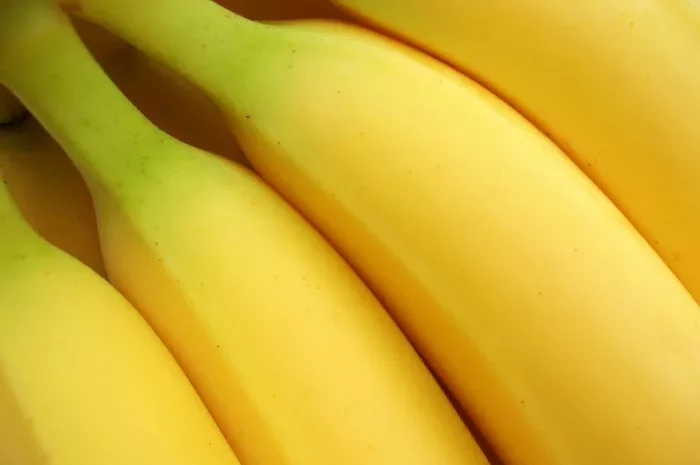Nutritional Profile of Bananas
Understanding the nutritional composition of bananas is essential for evaluating their impact on blood sugar levels. Bananas are primarily composed of carbohydrates, with a medium-sized banana containing approximately 27 grams of carbohydrates. Of these carbohydrates, sugars make up the majority, including natural sugars like glucose, fructose, and sucrose. However, bananas also contain dietary fiber, with an average of 3 grams per medium-sized fruit.
The presence of fiber is crucial as it affects how quickly carbohydrates are digested and absorbed in the body. Fiber slows down the digestion process, leading to a gradual release of sugar into the bloodstream rather than a rapid spike. This can help stabilize blood sugar levels and promote satiety, making bananas a favorable choice for those managing blood sugar.
Glycemic Index (GI)
The glycemic index (GI) is a measure of how quickly carbohydrates in food raise blood sugar levels. Foods with a high GI are digested and absorbed rapidly, causing a rapid increase in blood sugar, while those with a low GI produce a slower, more gradual increase. The GI of bananas varies depending on their ripeness.
Generally, ripe bananas have a higher GI than unripe ones. A ripe banana typically has a GI ranging from 50 to 60, while an unripe banana may have a lower GI of around 30 to 40. Compared to many other fruits, bananas have a moderate GI, which means they can cause a moderate increase in blood sugar levels when consumed.
Portion Control
Portion control is key when incorporating bananas into a diabetic diet. While bananas offer numerous health benefits, consuming excessively large portions can lead to spikes in blood sugar levels, especially for individuals sensitive to carbohydrates. A medium-sized banana is considered a reasonable portion for most people, providing the nutritional benefits without causing significant fluctuations in blood sugar.
For individuals closely monitoring their carbohydrate intake, smaller portions or pairing bananas with foods that slow down digestion, such as protein or healthy fats, can help manage blood sugar effectively.
Ripeness and Blood Sugar Impact
The ripeness of a banana plays a significant role in its sugar content and potential impact on blood sugar levels. As bananas ripen, their starch content converts into sugars, primarily glucose and fructose. Consequently, ripe bananas have higher sugar content and a higher GI compared to unripe bananas.
When choosing bananas, individuals managing blood sugar may opt for slightly underripe bananas to minimize the glycemic impact. These bananas contain more resistant starch, which resists digestion and may have a lesser effect on blood sugar levels. However, personal preferences for taste and texture should also be considered when selecting bananas.
Combining with Other Foods
Pairing bananas with foods that contain protein or healthy fats can help balance the meal and mitigate blood sugar spikes. Protein and fat slow down the digestion and absorption of carbohydrates, resulting in a more gradual release of sugar into the bloodstream.
For example, combining a banana with a serving of Greek yogurt or almond butter creates a balanced snack that provides both carbohydrates and protein, promoting stable blood sugar levels. Similarly, adding slices of banana to a smoothie with avocado or chia seeds adds healthy fats, further enhancing blood sugar control.
Individualized Dietary Planning
It’s essential to recognize that individual responses to foods can vary widely among people with high blood sugar or diabetes. While bananas may be well-tolerated by some individuals, others may experience significant fluctuations in blood sugar levels after consumption.
Therefore, personalized dietary planning is paramount. Consulting with a registered dietitian or healthcare professional can help individuals with high blood sugar develop a tailored meal plan that includes appropriate portions of bananas while considering other dietary factors and individual health goals.
Health Benefits
Beyond their impact on blood sugar levels, bananas offer a plethora of health benefits. They are rich in essential vitamins and minerals, including vitamin C, potassium, vitamin B6, and manganese. Potassium, in particular, plays a crucial role in regulating blood pressure and supporting heart health.
Additionally, bananas contain antioxidants like dopamine and catechins, which may help reduce the risk of chronic diseases and oxidative stress. The fiber content in bananas supports digestive health by promoting regularity and aiding in weight management.
Diabetes Management Tips
1. Managing diabetes requires a multifaceted approach that goes beyond dietary considerations. Here are some general tips for effectively managing diabetes:
2. Regularly monitor blood sugar levels to track fluctuations and adjust dietary choices accordingly.
3. Follow a balanced diet rich in whole foods, including fruits, vegetables, lean proteins, and healthy fats.
4. Engage in regular physical activity to improve insulin sensitivity and control blood sugar levels.
5. Maintain a healthy weight through a combination of diet, exercise, and lifestyle modifications.
6. Take medications as prescribed by healthcare professionals and attend regular check-ups to monitor diabetes management.
Conclusion
In conclusion, bananas can be part of a balanced diet for individuals with high blood sugar or diabetes when consumed in appropriate portions and in conjunction with other nutritious foods. By understanding the nutritional profile, glycemic impact, portion control, ripeness considerations, and potential combinations with other foods, individuals can incorporate bananas into their dietary regimen while effectively managing blood sugar levels. However, personalized dietary planning and regular monitoring are essential for optimizing diabetes management and overall health.
























